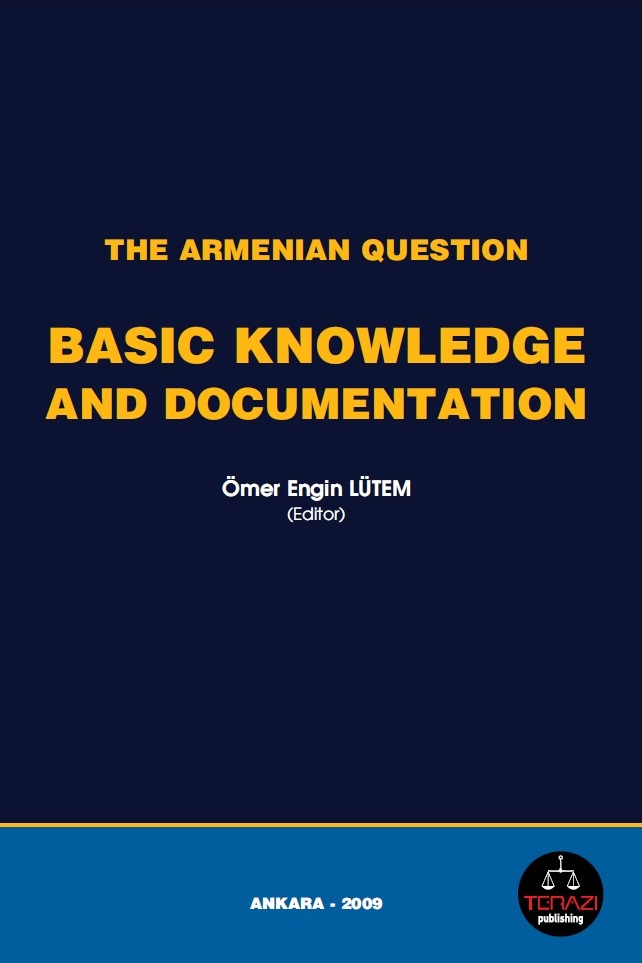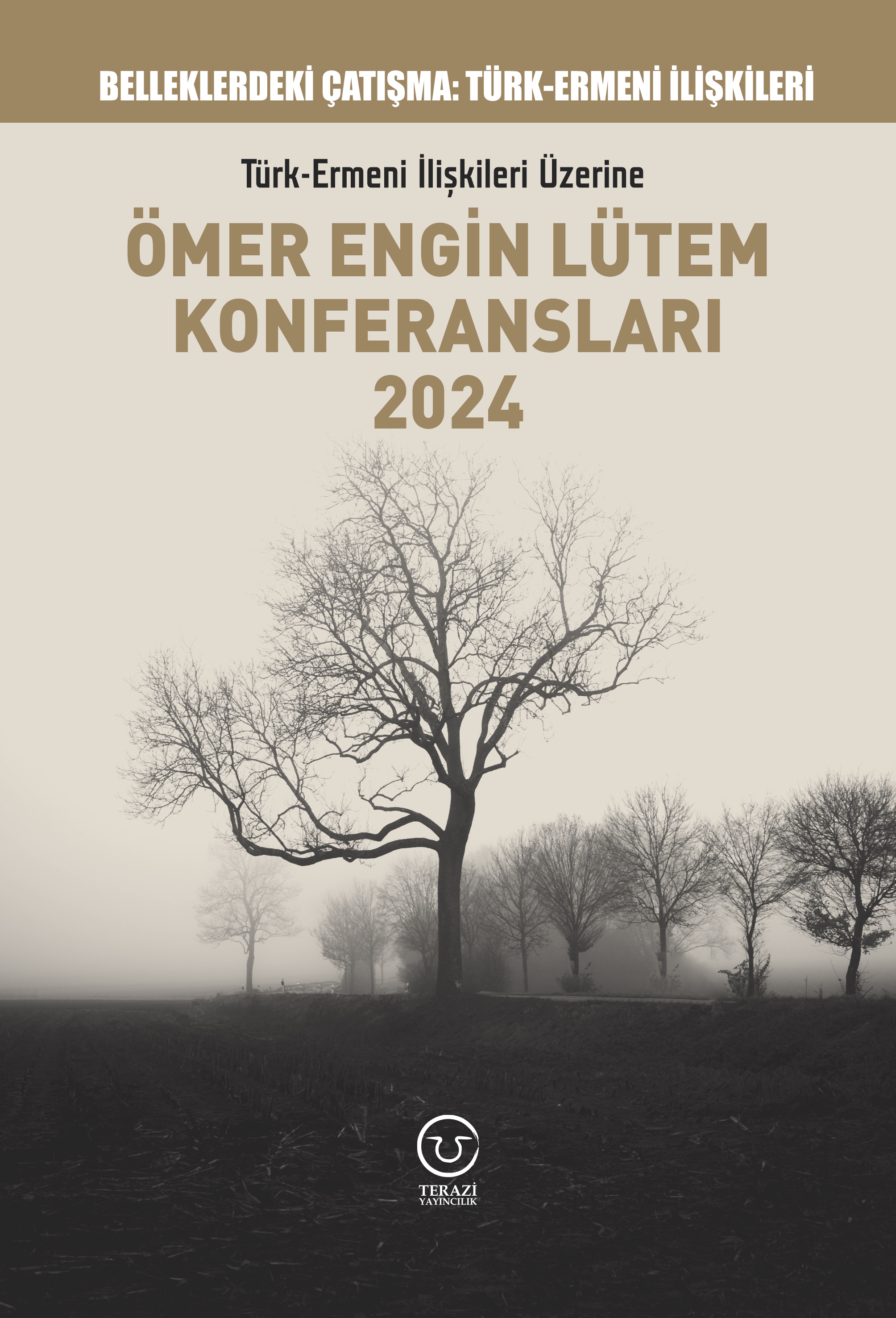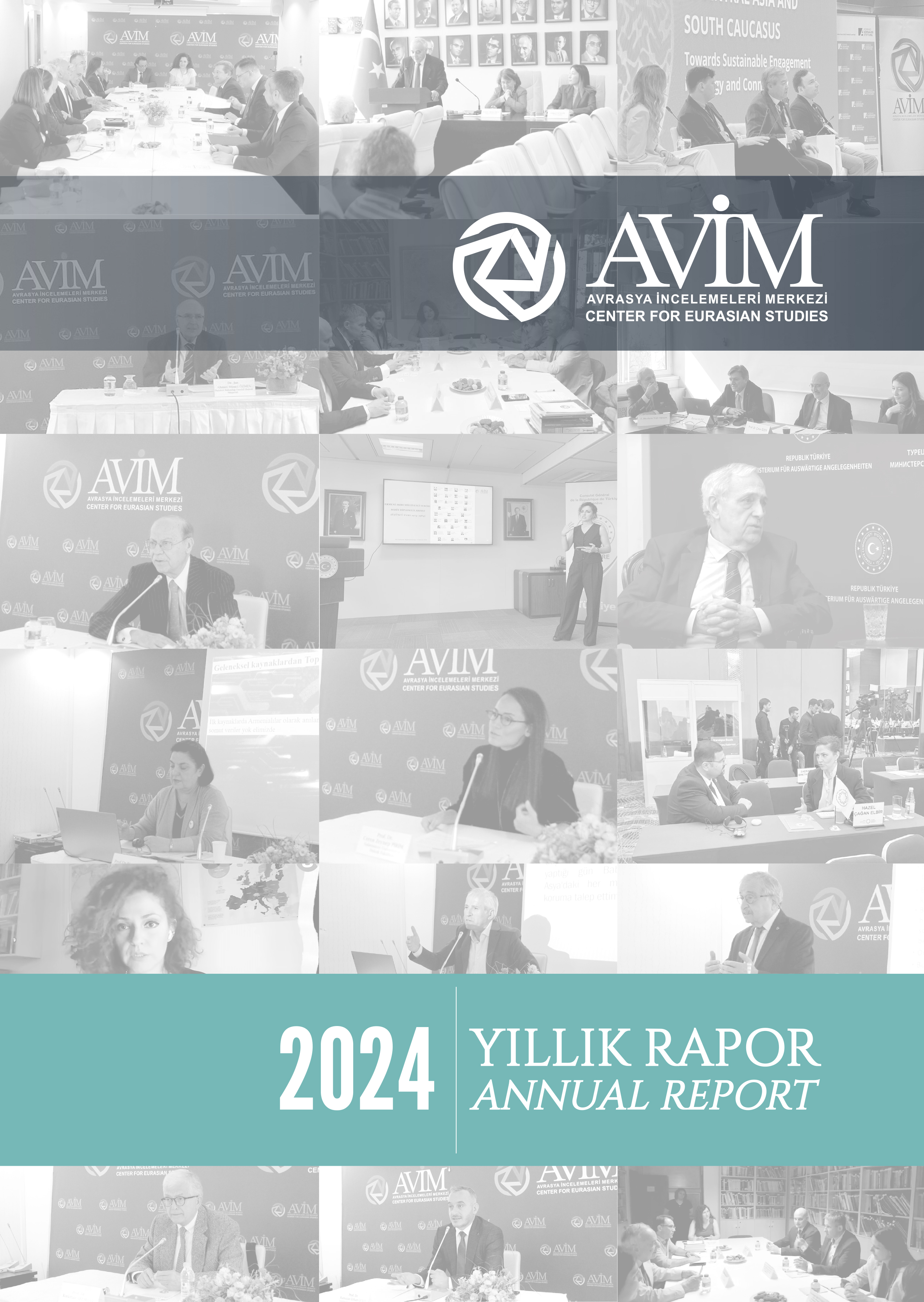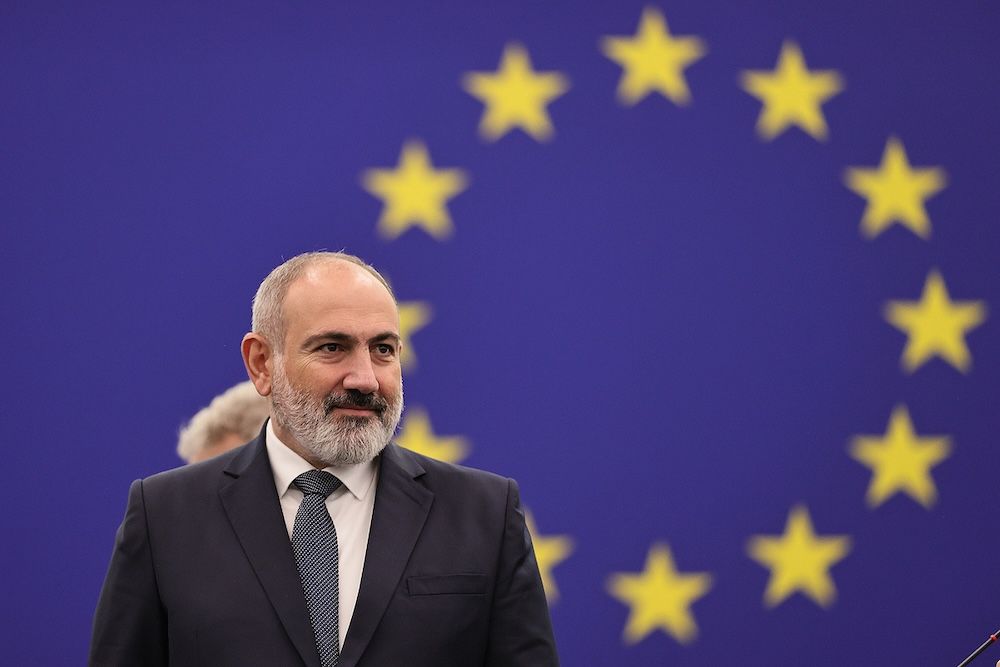
Azerbaijan and Armenia are reporting that they have agreed upon the text of the peace treaty that is to be signed by the two sides. With the signing of this treaty, the missing piece of the South Caucasus cooperation network will finally be put in place. This has been a protracted, painful process that required the resolution of the Karabakh Conflict, something that had persisted ever since the First Karabakh War that broke out between Azerbaijan and Armenia as the Soviet Union was collapsing at the end of the 1980s. After years of Armenia’s intransigence and futile negotiations under the auspices of the Organization for Security and Co-operation in Europe (OSCE) Minsk Group, Azerbaijan was forced to take matters into its own hands.[1] It should be emphasized here that, no matter how Armenia and its traditional backers in the West spin this,[2] Armenia was the aggressor and Azerbaijan was the victim throughout the Karabakh Conflict that persisted for around 30 years.
Now that it has emerged victorious by beating the odds that were stacked against it, Azerbaijan is taking its time to form a lasting peace framework with Armenia that will be resilient against provocations from both inside (domestic politics) and outside (the Diaspora) of Armenia. This necessitates Azerbaijan and Armenia finalizing border demarcation and the changing of the Armenian Constitution so that there are no more any territorial claims being made against Azerbaijan.[3] There is also the discussion over the realization of the Zangezur Corridor that will offer direct connection between Azerbaijan proper and its exclave of Nakhchivan through Armenia. Although Azerbaijan has indicated that it desires to sign a peace treaty with Armenia, it will not do so under foreign pressure that could taint the peace treaty and leave the door open for Armenia to claim Azerbaijan’s territories in the future.
In comparison to Azerbaijan, Armenia is in a hurry to sign the peace treaty for three reasons: 1) The Nikol Pashinyan administration is worried that mounting domestic and Diaspora opposition could make it politically unfeasible to sign a treaty that forces Armenia to relinquish its territorial claims against Azerbaijan, 2) The Pashinyan administration is worried that Russia, which loathes Pashinyan but is currently bogged down in Ukraine due to the ongoing war of attrition, could eventually find the opportunity to turn its attention to Armenia and use its substantial influence there to jeopardize Pashinyan’s political future, 3) The administration is keen to forge a path towards the West, but this requires passing through Türkiye, which has stipulated that Armenia must first make peace with Azerbaijan (this will be elaborated below). Hastily trying to finalize the peace process without truly alleviating Azerbaijan’s concerns, Armenia has resorted to word games to argue that it has fulfilled its responsibilities,[4] something that has failed to convince Azerbaijan.
Türkiye’s staunch support for Azerbaijan seems to be causing considerable frustration both in Armenia and in Western circles that are trying to create a status quo in the South Caucasus in favor of Armenia. Türkiye has repeatedly made it clear that it will only normalize its relations with Armenia after the Azerbaijan-Armenia peace treaty process is finalized. There is a very simple explanation for this insistence; Türkiye is Armenia’s direct land access to the European Union. Having grown increasingly wary of Russia’s choking influence over it, Armenia is carefully attempting to move away from Russia and towards the EU (and by association, the United States). Normalization with Türkiye is therefore Armenia’s top priority. Were Armenia to first normalize its relations with Türkiye, it would have no need to establish peace in a way that will address Azerbaijan’s grievances. Türkiye is therefore using its position to force Armenia to come to an agreement with Azerbaijan and ease the realization of Azerbaijan’s foreign policy objectives.
Reacting to Türkiye’s stance, Armenia and its Western backers have accused Türkiye of complicating the Azerbaijan-Armenia peace process and delaying the advancement of regional cooperation in the South Caucasus. They have also argued that Türkiye is damaging its own economic and political interests by causing the perpetuation of closed borders in the region. These arguments, however, have failed to change Türkiye’s stance, because they do not change Türkiye’s importance as an access route to the West for Armenia. Faced with this obstacle, an alternative method is used with the hopes of changing the current situation; using provocative statements meant to trigger emotional reactions in Türkiye and Azerbaijan and thereby play the two brotherly countries against each other.[5]
This method involves portraying Türkiye as the “big brother/patron” of Azerbaijan who cannot keep its “little brother/client” under control and is thus put into an embarrassing situation by Azerbaijan. Türkiye is therefore made to look like a humiliated and impotent major power that cannot pursue an independent foreign policy. Meanwhile, Azerbaijan is portrayed as an ungrateful minor power reacting to the tutelage or domination of a “brotherly” larger power. Azerbaijan is made to look like it has used its substantial wealth to hijack Türkiye’s foreign policy and is forcing Türkiye to act in ways that are contrary to its interests.
No matter how cunning Armenia and its traditional backers may believe this method to be, it fails to work because Türkiye-Azerbaijan bilateral relations are based not just on emotional bonds, but realistic expectations and common interests. In this relationship, Türkiye is not the “big brother/patron” and Azerbaijan is not the “little brother/client”. They are two equal countries in the international arena that share a common history and culture, and seek strength in unity through constructing a robust Turkic world. There is for sure a strong emotional bond between Türkiye and Azerbaijan, but there are also strong economic and military bonds. Both countries have substantial investments in each other’s economies, and their military cooperation enhances each other’s security in the region. Lastly, unlike the US, the EU, and Russia, Türkiye does not view foreign relations as a means for achieving domination through coercion or bribery.[6]
Rather than coming up with “cunning” ways to drive a wedge between Türkiye and Azerbaijan, it would be more prudent for Armenia to start doing the work necessary to finalize the peace agreement process with Azerbaijan, and for Armenia’s traditional backers to stop encouraging Armenia with false promises that could derail the peace process.
[3] Tuğçe Tecimer and Selenay Erva Yalçın, “Pashinyan's One-Sided View of the Peace Process”, Center for Eurasian Studies (AVİM), Commentary No: 2025/24, May 16, 2025, https://avim.org.tr/en/Yorum/PASHINYAN-S-ONE-SIDED-VIEW-OF-THE-PEACE-PROCESS ; Selenay Erva Yalçın, “Ermenistan’ın Anayasa Değişikliği Gündemi Ve Barış Süreci”, Avrasya İncelemeleri Merkezi (AVİM), Yorum No: 2025/18, 3 Mart 2025, https://avim.org.tr/tr/Yorum/ERMENISTAN-IN-ANAYASA-DEGISIKLIGI-GUNDEMI-VE-BARIS-SURECI
[5] Richard Giragosian, “Türkiye-Azerbaijan: From Patron to Prisoner”, Agos, March 26, 2025, https://www.agos.com.tr/en/article/32243/turkiye-azerbaijan-from-patron-to-prisoner ; Anna Ohanyan, “Turkey’s Pivotal Moment With Azerbaijan”, Foreign Policy, April 30, 2025, https://foreignpolicy.com/2025/04/30/turkey-influence-azerbaijan-armenia-treaty/
© 2009-2025 Center for Eurasian Studies (AVİM) All Rights Reserved

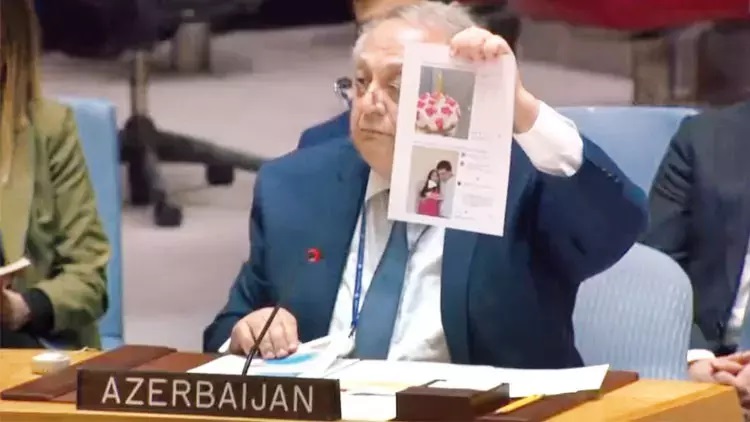 DISCUSSIONS ON KARABAKH AT THE UNSC AND ITS REPERCUSSIONS IN SOME CIRCLES
DISCUSSIONS ON KARABAKH AT THE UNSC AND ITS REPERCUSSIONS IN SOME CIRCLES
 A HYPOCRITICAL CALL FOR INTER-RELIGIOUS DIALOGUE
A HYPOCRITICAL CALL FOR INTER-RELIGIOUS DIALOGUE
 THE SWISS BANK ACCOUNT OF KAREKIN II
THE SWISS BANK ACCOUNT OF KAREKIN II
 POPE FRANCIS SHOULD HEED PATRIARCH KIRILL’S REMARKS
POPE FRANCIS SHOULD HEED PATRIARCH KIRILL’S REMARKS
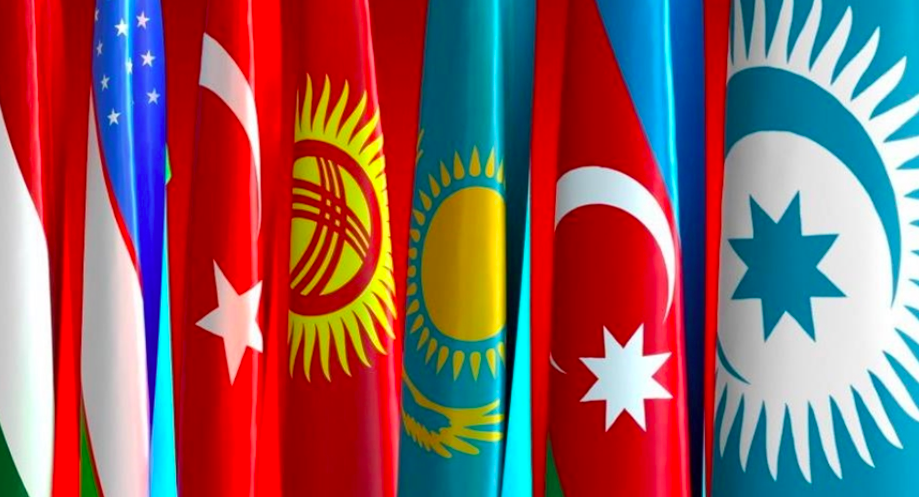 INCREASING PARTNERSHIP WITH THE TURKIC COUNCIL
INCREASING PARTNERSHIP WITH THE TURKIC COUNCIL
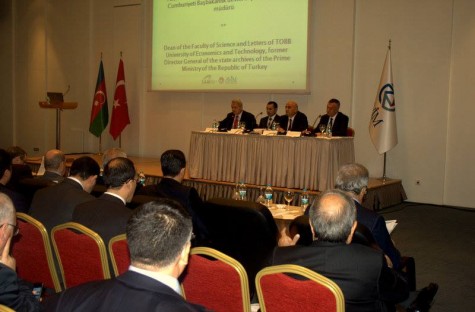 A MEETING WAS HELD IN ANKARA WITH THE COOPERATION OF AVIM AND AZERBAIJAN SAM
A MEETING WAS HELD IN ANKARA WITH THE COOPERATION OF AVIM AND AZERBAIJAN SAM
 THE DECEMBER 2020 LEGISLATIVE ELECTIONS AND THE NEW COALITION GOVERNMENT IN ROMANIA
THE DECEMBER 2020 LEGISLATIVE ELECTIONS AND THE NEW COALITION GOVERNMENT IN ROMANIA
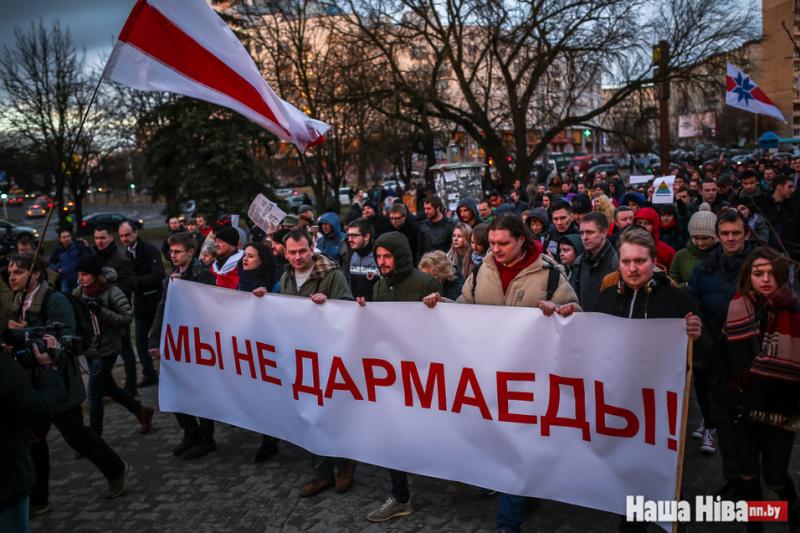 PROTESTS AGAINST THE “SOCIAL PARASITE TAX” IN BELARUS
PROTESTS AGAINST THE “SOCIAL PARASITE TAX” IN BELARUS
